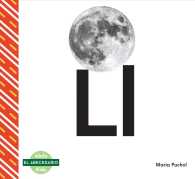- ホーム
- > 洋書
- > 英文書
- > Philosophy
Full Description
What makes humans cognitively unique, and why are we unique in these ways? Armin W. Schulz suggests that the singularity of our ways of thinking is based in a positive feedback loop that joins innate representations, forms of cultural learning, and technology. This feedback loop explains a number of key applications of our cognitive abilities, from our industriousness through trade, our conceptions of morality, and our ability to engage with the thoughts of others.
Discussing the evolution of human cognition is complicated by the fact that it must be recognized to be multi-dimensional, culturally variable, and only differing in degree from non-human cognition. Taking this complexity into account, Schulz develops an interactionist theory of the evolution and nature of distinctively human cognition. At the core of this theory is the idea that underlying human cognitive uniqueness is a complex, interlocking interplay between three different elements: (1) a set of evolved representational expectations; (2) a pronounced disposition for cultural learning, and (3) complex and variegated technology. All three are further underwritten by a unique set of lower-level cognitive abilities, which are in turn influenced by the feedback loop created by the major three.
With the help of this feedback loop, key examples of uniquely human cognition can be explained: distinctively human mindreading, distinctively human moral cognition, and the distinctively human propensity for trade. Schulz concludes with an application of this interactionist theory of distinctively human cognition to some issues of contemporary importance: the relationship between distinctively human cognition and increasingly sophisticated artificial intelligence, the role of religion in human thought and action, and the relationship between extensive patent regimes and human innovation.
It's Only Human makes clear how human cognition can end up differing quite markedly from non-human cognition, even though its individual elements might initially and intrinsically only differ in relatively small degrees.
Contents
Chapter 1: Introduction
Chapter 2: Human Cognitive Uniqueness: An Inventory
Chapter 3: Explaining Distinctively Human Cognition: The Lay of the Land
Chapter 4: Thinking Tools
Chapter 5: The Origins of Distinctively Human Mindreading: A Bio-Social-Technological Coevolutionary Account
Chapter 6: The Making of Morality: The Bio-Social-Technological Evolution of Human Moral Representations
Chapter 7: Tools of the Trade: The Biocultural-Technological Evolution of the Human Propensity to Trade
Chapter 8: Artificial Intelligence, Religion, and Patents: Some Applications
Chapter 9: Conclusion






